CEsA Books
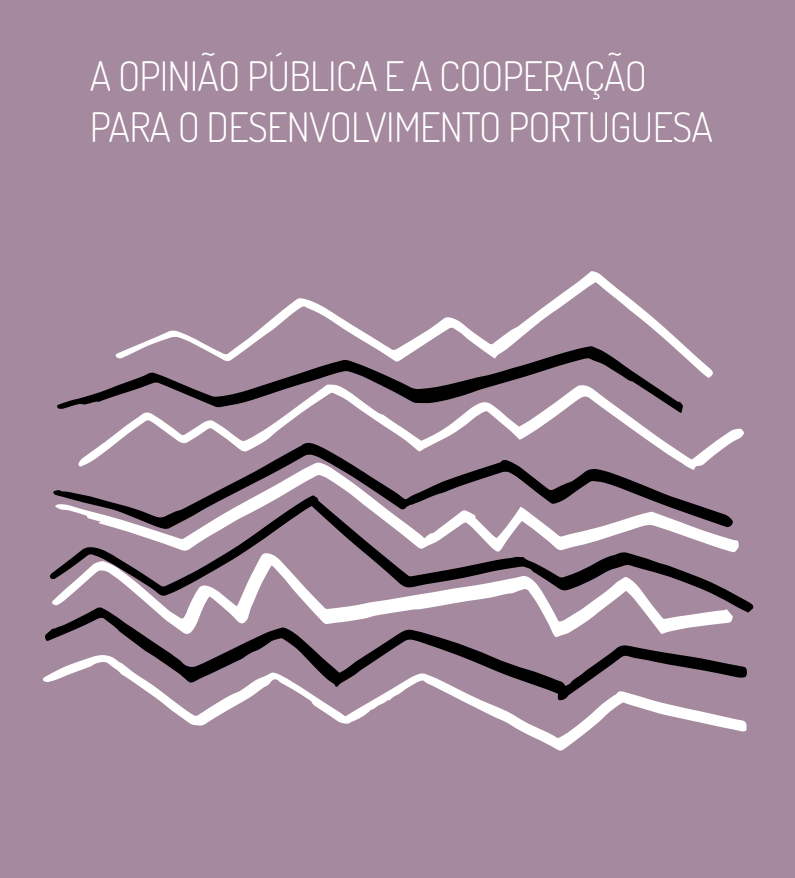
A Opinião Pública e a Cooperação para o Desenvolvimento Portuguesa
Abstract:
Almost 20 years after the first public opinion poll on the role of Development Cooperation, particularly Portuguese Cooperation, we have launched a new study to find out what Portuguese society thinks about this sector, at a time when a new strategic cycle of Portuguese Cooperation is underway. In this sense, the Association for Cooperation Between Peoples (ACEP) proposed to the Centre for African and Development Studies of the Lisbon School of Economics and Management (CEsA/ISEG) and to the Department of Social Sciences and Territorial Policies of the University of Aveiro (DCSPT/UA) a process of updating knowledge about Portuguese public opinion, in order to provide a more reliable view of opinions in this area and better plan strategies for dialogue and public debate with different sectors of society, including national political decision-makers and journalists.
The Portuguese Cooperation Strategy 2030 highlights, among other things, the importance of communication with society and the visibility of the sector to allow for greater understanding and recognition of its role in the calculation of Portuguese public policies. In fact, in Portugal, Development Cooperation continues to occupy a residual space in the political debate, especially at the level of the Assembly of the Republic and the media, and there are still difficulties in approaching and working systematically with Portuguese MPs and journalists and in placing the issues of Development and International Cooperation in the media.
Over the last 20 years, International Development Cooperation has undergone profound changes, which Portuguese Cooperation has not been immune to. Although it is a policy about which there is little institutional debate at national level, it is a crucial sector in the way Portugal relates to the world, particularly with some of the countries with which it maintains strong bilateral relations, such as the PALOP and East Timor. This relationship does not only involve the State, but also involves a wide range of sectors, both public and private, for-profit and non-profit, approaching Development Cooperation in different ways and giving rise to different types of relationships.
This survey did not come about in a vacuum and is naturally not immune to the current international context, which is particularly adverse and poses additional challenges to Development Cooperation. However, this public policy has a unique role in promoting Development, peace and human rights. Current conflicts, in particular the wars in Gaza and Ukraine (which marked the return of war to Europe), the disrespect for and discredit of International Law and multilateralism, as well as the rise of populist discourse throughout the world and, particularly in Europe, are elements that characterise the environment in which Development Cooperation needs to continue to assert itself and strengthen itself as the noblest expression of the foreign policy of States and international institutions.
Cite this book:
ACEP & CEsA (2024). “A Opinião Pública e a Cooperação para o Desenvolvimento Portuguesa”. ISBN 978-989-8625-35-9
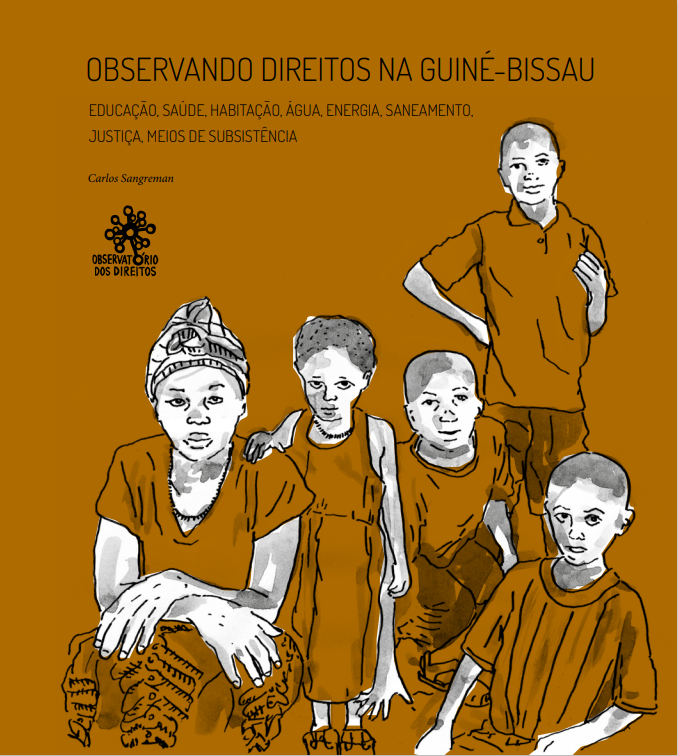
Observando Direitos na Guiné-Bissau: Educação, saúde, habitação, água, energia, saneamento, justiça, meios de subsistência
Quotation:
Sangreman, C. (2017). Observando Direitos na Guiné-Bissau – educação, saúde, habitação, água, energia, saneamento, justiça, meios de subsistência. Lisboa: ACEP, com LGDH e CEsA. ISBN 978-989-8625-16-8

Observando Direitos na Guiné-Bissau: Educação, saúde, habitação, água, energia, saneamento, justiça, meios de subsistência
Quotation:
Sangreman, C. (2016). Observando Direitos na Guiné-Bissau – educação, saúde, habitação, água, energia, saneamento, justiça, meios de subsistência. Lisboa: ACEP, com LGDH e CEsA. ISBN 978-989-8625-14-4
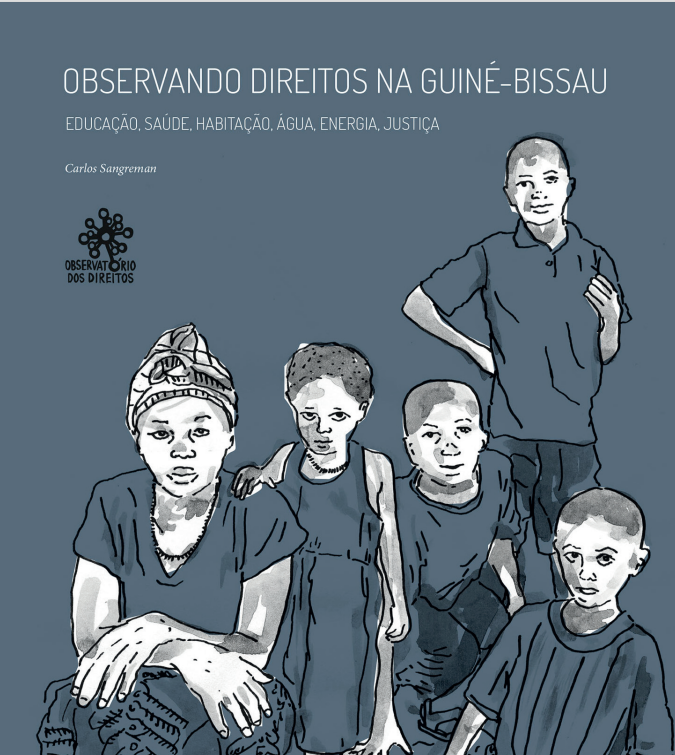
Observando Direitos na Guiné-Bissau: Educação, saúde, habitação, água, energia, justiça
Quotation:
Sangreman, C. (2015). Observando Direitos na Guiné-Bissau – educação, saúde, habitação, água, energia, justiça. Lisboa: ACEP, com LGDH e CEsA. ISBN 978-989-8625-07-6.
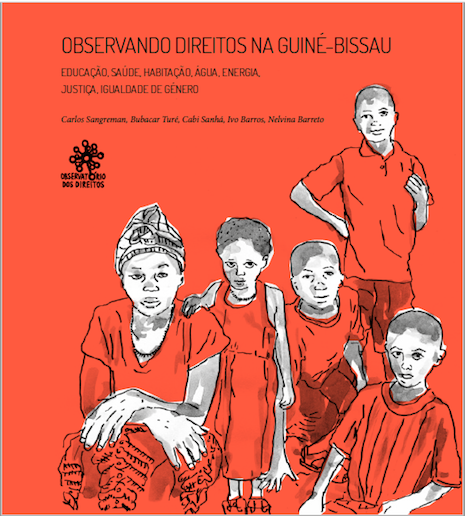
Observando direitos na Guiné-Bissau: educação, saúde, habitação, água, energia, justiça, igualdade de género
The Rights Observatory integrated in a structure such as Casa dos Direitos is an example of what civil society can do in fragile social contexts, but where power respects the Right to Opinion (even if at some times there is repression of media outlets such as radios and television and a climate of threat to critics of the situation at the time). The data collected on access to Economic and Social Human Rights, disseminated through books and exhibitions, in order to be used by activists and responsible authorities, has even been the basis for academic research at undergraduate, master’s and, this year, doctoral levels, especially in Portugal and Brazil.
Abstract:
The objective of Observando direitos na Guiné-Bissau: educação, saúde, habitação, água, energia, justiça, igualdade de género and the Observatório dos Direitos in 2019 was to continue the collection of data on access to Economic and Social Human Rights in Guinea-Bissau with data comparable to those of 2016, and to include two innovations: a new chapter on Women’s Rights or Equality of Gender and perform data collection also in the Bolama/ Bijagós region.
Quotation:
Sangreman, Carlos [et al.] (2020). Observando direitos na Guiné-Bissau : educação, saúde, habitação, água, energia, justiça, igualdade de género. Lisboa: ACEP, com LGDH e CEsA. URL: https://www.repository.utl.pt/handle/10400.5/20866
Access the article here.
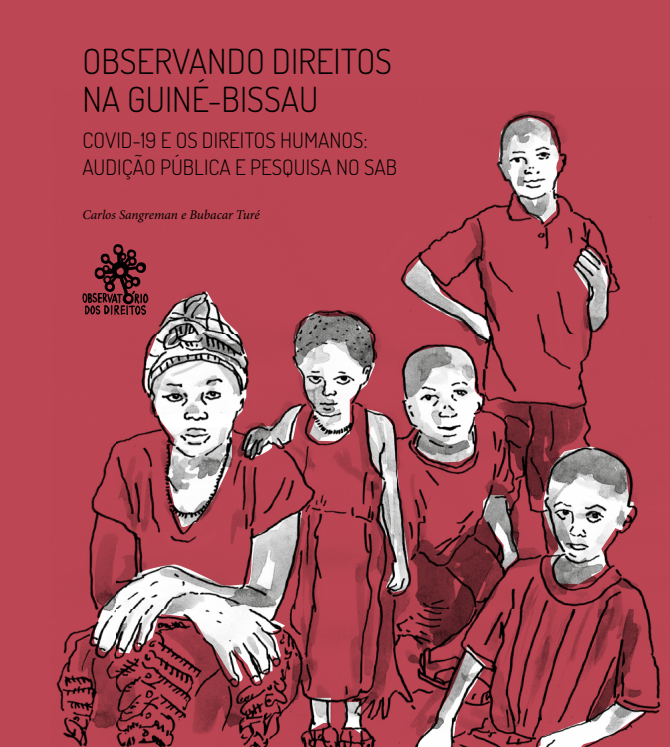
Observando direitos na Guiné-Bissau: Covid-19 e os direitos humanos: audição pública e pesquisa no SAB
Abstract:
Observando Direitos na Guiné-Bissau – Covid-19 e os Direitos Humanos: audição pública e pesquisa no SAB intends to investigate the human rights situation during the Covid-19 pandemic in Guiné-Bissau between January 2020 and January 2022. The framework is based on documentary research on human rights in sub-Saharan Africa from the production of international and specialized organizations, and other non-governmental human rights defenders of the same period. For Guiné-Bissau, in addition to equal research, the communiqués and official bulletins of the “Hight commissariat for Covid-19” were also collected with the information of infected, hospitalized, recovered, deaths and vaccinations, as well as interviews with the newspapers of the Commissioner and the Secretary. With the concentration of cases in the capital, Bissau, the research organize a survey of families, of market sellers and of companies on the effects of the pandemic and the measures enacted by the Government/Presidency to contain. A public hearing was also organized in the House of Rights, with various entities ranging from the High Commissariat to Unions, journalists, and public order police to information about how each institution through its situation and action in this period. As conclusions of the analyses of all these qualitative and quantitative data, it is possible to affirm that Guinea-Bissau’s fragility has such a weight in Guinean society that a disease that has killed fewer people in the country than malaria, diarrhea or tuberculosis has not overlapped with problems arising in poverty and low incomes in general. It affected Human Rights by showing that it was already knew about the enormous shortcomings of the health system, but the effects were more graves on economic and social rights by the abrupt stagnation of economic international activity, the cooperation project, unemployment, and the rise of poverty than directly by the pandemic and measures adopted. The human rights of first generation, more political, freedom of the press and demonstration were affected, with arbitrary arrests and violence practiced by unidentified individuals intensifying the climate of impunity and feeling that the regime is becoming increasingly repressive, but it cannot be said that they were effects directly arising from the pandemic.
Quotation:
Sangreman, C., Turé, B. (2022). Observando Direitos na Guiné-Bissau – Covid-19 e os Direitos Humanos: audição pública e pesquisa no SAB. pag.93. Lisboa: ACEP, com LGDH e CEsA. ISBN 978-9898625-27-4





